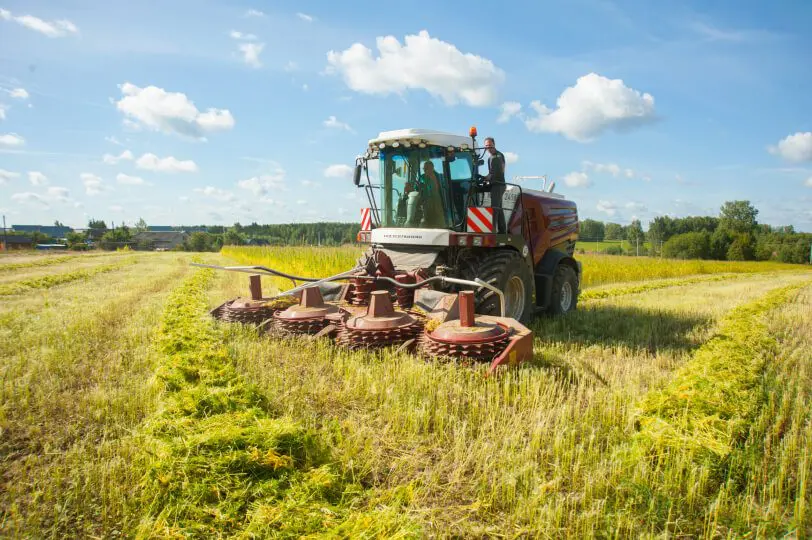The unique company “Smart Hemp” revives the traditions of cannabis growing in the Russian Empire. From hemp stalks, fiber is obtained – hemp. Since ancient times in Russia, ropes and cords have been twisted from hemp, bags and even clothes have been made. In the USSR, all-Union standards for cannabis growers were developed, and at Soviet enterprises, combines designed for collecting cannabis were produced. With the collapse of the country, the industry disappeared – and only now is it reviving through the efforts of enthusiasts.
In 2020, the first crop of industrial hemp was harvested in the fields in the Yuzhsky district. In 2021, the sown area increased, and by next summer businessman Maxim Uvarov plans to double and even triple them – the demand for Smart Hemp products is so high and stable. He makes his main bets on a blended fiber made of hemp and cotton – cottonin – from which fabric is made that is more durable than cotton. Clothes made from such fabric wrinkle less, keep it cool in the heat and warm in the cold, which compares favorably with synthetics. And its wear resistance is so high that the Chinese military department has launched a program to re-equip the Chinese army: now underwear and socks for Chinese soldiers are sewn from cotton-hemp fabric.
In 2021, cotton prices skyrocketed around the world amid the pandemic, spurring demand for less expensive and more practical blended fibers. Local factories are already developing cotton bedding and clothing collections. But the scope of this crop is not limited to the textile industry. First, hemp kernels can be eaten – they taste like pine nuts. Energy bars with their addition are already on sale in stores and are in demand by supporters of a healthy lifestyle. And secondly, hemp is an ideal additive raw material for carbon fiber, from which hulls of missiles and sports cars are made. By using hemp in car body production, 40% less CFRP can be used. And this is very valuable from the point of view of ecology, because hemp has a negative carbon footprint – that is, it not only does not emit, but absorbs significant amounts of carbon dioxide from the atmosphere during cultivation. If the southern hemp finds an outlet on the European market, it will provide customers with at least the French, German and Italian car industry.
Thus, on the very outskirts of the Ivanovo region, a farm with a gigantic domestic and export potential appeared in three industries at once: textile, food and automotive. It is logical that the leadership of the Ivanovo region pays special attention to the Smart Hemp company and helps its development. In particular, at the request of the company, it was included in the list of residents of the territory of advanced social and economic development (PSEDA) “Yuzha” with reduced taxation in the first ten years of operation. And to establish logistics, new roads were laid to the fields of Smart Hemp, which helped not only business, but also local residents, who received both promising jobs and transport infrastructure.







